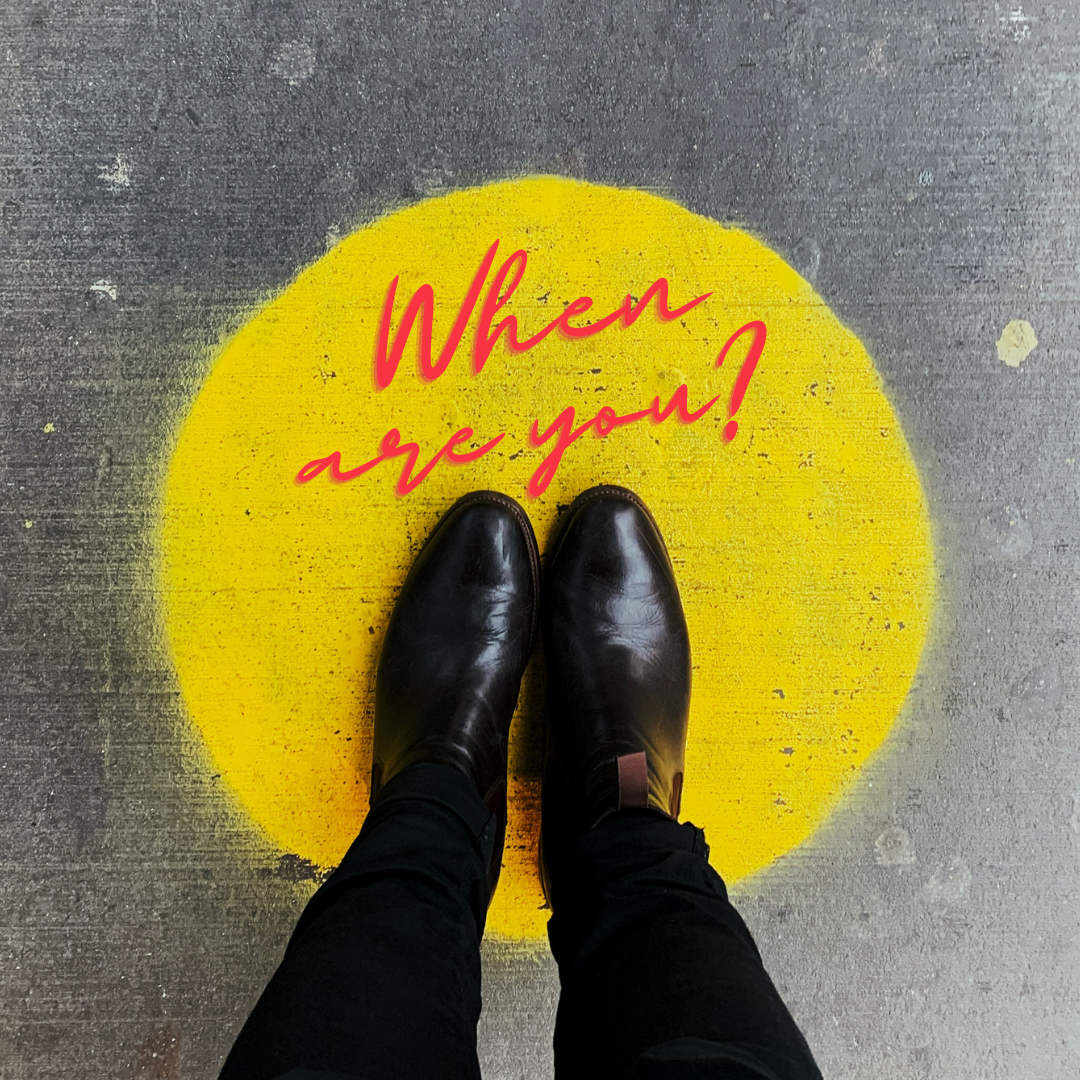You spend the majority of your time attempting to manipulate your time.
You do the practical kind of daily planning:
Pack the lunches.
Coordinate the schedules.
Book and save for the next vacation.
Figure out how to meet the deadline at work.
Set a multitude of reminders and alarms that tell you when to eat, sleep, breathe.
The less practical kinds of planning you perform by way of mental rehearsals in the car as you drive, in the shower, or while you pair the socks together in the laundry basket:
Every version of the next conversation between you and the person you’re at odds with.
What you’ll do if your son wrecks the car.
Who you’ll call first if you get the diagnosis.
How you’ll handle it if your date no-shows you.
You’re prepared at all costs.
You tell yourself “someday” the way you tell a child who wants an ice cream cone before dinner “maybe later.” Someday you’ll have the freedom, the guts, the money, the energy, or the willpower.
Once in awhile, something major happens—the loss of a loved one, the birth of a child, the lay off, the big promotion—nudging you to glance at the clock and check if you’re any closer to someday. You feel a new, even if fleeting, sense of urgency to swipe hold of joy, to be really in it, lest you miss it.
It’s in those times—the quiet ones when you stand still long enough to admit that despite your efforts to harness it, time is uncatchable—that you take stock of your human experience so far. At best, your memories are shifty stand-ins for the reality of your past, glorifying the good bits and exaggerating the bad. Subconsciously, you resolve to replicate both, because at least you know what to expect that way. You realize you’re half way through a life that feels like the waiting room for the life you really want.
Wrestling with our past and forcing every moment of our future doesn’t make our lives better—it makes them predictable.
Predictable pain isn’t less painful, but more so. Knowing a needle is about to poke your skin makes the shot hurt more than if you aren’t bracing yourself for the impact. Predicting our pain contracts and hardens us to the degree that if and when the real pain arrives, we’re immobilized inside it. We lose our fluidity, our ability to allow the pain to move through us. Instead, the pain swirls around us, waiting indefinitely until we allow it to pass through and serve its intended purpose. Some never let that happen.
Predicting joy is also dangerous, because it locks our joy outside the present moment. I’ll be happy when… promises us that we’ll be happy eventually instead of now, urging us to seek circumstantial joy. Whenever we do manage to procure this “decoy joy,” we accept it with the anxiety that it can be taken away at any given moment. As a result, we don’t commit to feeling it fully, so the whole experience falls short of the spontaneous, magical, genuine kind of joy that we’re meant to have.
Ultimately, we trade wildly full lives for mediocre predictable ones, because we’re afraid of being duped. We understandably don’t want to be left standing empty-handed in the end. When we look down at our hands, though, we find white-knuckled fists holding onto nothing. We habitually martyr ourselves in the name of an illusion of total control. We do an incredible amount of work only to ensure the fate we’re attempting to escape, but as long as we’re driving the ship, it somehow feels justified.
Thankfully, in a world where most of us operate within the illusion of total control, it’s not that we’re completely without it. Our saving grace in this catch-22 is that we all have one explicit and profound power. It comes from the deliberate decision to let go and open our hands to receive fully whatever comes to us. The genuine, unadulterated joy. The sage teachings of our pain. This decision feels like putting your hands over your head on the biggest drop of the rollercoaster. It tastes like eating the ice cream cone before dinner. It sounds like the whisper of “I love you.” It smells like the coming of rain in a field of flowers. Letting go looks like presence in the here and now, which is the only time you will find wholeness. It’s the only true time that exists. Allow yourself the luxury of being in it.


